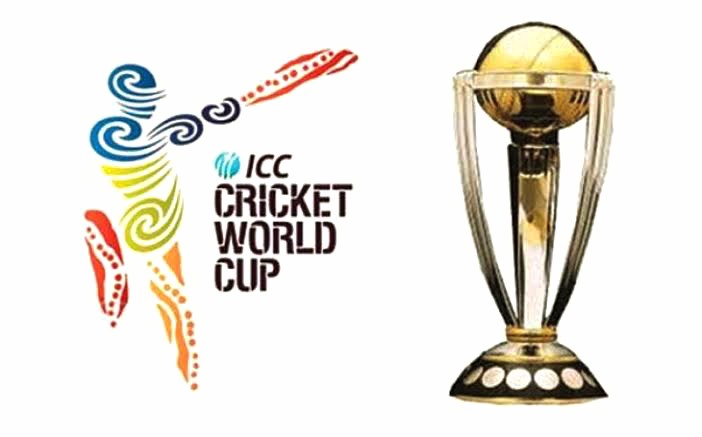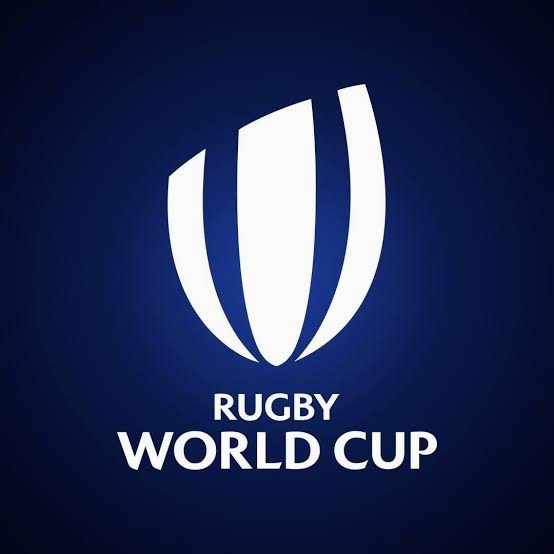
The FIFA World Cup

The FIFA World Cup, held every four years, is the pinnacle of international football, captivating global audiences with intense matches and dramatic storylines. In this article, we will examine its history, significance, and impact, highlighting key moments and trends that have shaped the competition.
Historical Background
The inaugural World Cup in 1930, hosted by Uruguay, featured 13 teams. Subsequently, the tournament expanded to 32 teams by 1998, thereby boosting competitiveness and global appeal. This growth underscores the World Cup’s increasing significance and reach.
Advancement of the Tournament
The World Cup’s format and play level have progressed, with increased competitiveness from Asia, Africa, and North America. Furthermore, technological advancements like goal-line technology and VAR have revolutionized officiating, ensuring fairness and accuracy.
Iconic Moments
The World Cup has produced unforgettable moments, such as Maradona’s “Hand of God” goal in 1986 and Zidane’s headbutt in the 2006 final. These events, whether controversial or spectacular, significantly contribute to the tournament’s enduring legacy.
Economic and Cultural Impact
The World Cup’s influence extends beyond the pitch, generating significant revenue for host countries through tourism and infrastructure, such as the $13 billion earned by Brazil in 2014. Culturally, it unites diverse people, fostering national pride and is evident in global fan festivals and public screenings.
Social and Political Dimensions
The World Cup impacts social and political spheres by highlighting issues and fostering change. For instance, the 2010 World Cup in South Africa showcased post-apartheid progress, whereas the 2022 World Cup in Qatar drew attention to labor rights and environmental concerns.
The Future of the World Cup
Looking ahead, the World Cup continues to advance. The 2026 tournament, which the United States, Canada, and Mexico will jointly host, will feature 48 teams, further increasing the tournament’s inclusivity and global reach. This expansion reflects FIFA’s commitment to growing the sport and making it accessible to a broader audience.
In conclusion, the FIFA World Cup transcends sports, creating iconic moments and uniting people worldwide. Moreover, its rich history and cultural impact make it a unique spectacle, continuously advancing and shaping new memories. The World Cup also stands as a testament to the power of sport in our world.
Click for more on FIFA World Cup
The Under 20 Championship Cup

Every two years, the Under-20 World Cup emerges as a pivotal event in the world of football, showcasing the brightest young talents from across the globe. This prestigious tournament serves as a proving ground for future stars, offering them a stage to display their skills and potential on an international level.
Introduction and History
The Under-20 World Cup, organized by FIFA, began in 1977 with the inaugural tournament held in Tunisia. Over the decades, it has grown exponentially in popularity and significance. Today, it stands as a crucial stepping stone for young players aspiring to make their mark in professional football.
Format and Participants
The tournament typically features 24 teams, each representing their respective countries. Furthermore, these teams go through rigorous qualifying rounds in their confederations to secure a spot in the final competition. The format consists of group stages followed by knockout rounds, ultimately culminating in the crowning of a champion.
Significance and Impact
The Under-20 World Cup holds immense significance for both players and nations alike. It provides a platform for lesser-known footballing nations to showcase their fresh talent on a global stage. Many of today’s top football stars, including Lionel Messi and Cristiano Ronaldo, first gained international attention through their performances in this tournament.
Development of Young Players
The tournament plays a crucial role in the development of young players. It also provides them with invaluable experience competing against their peers from diverse cultural and footballing backgrounds. Exposure to high-pressure situations at a young age helps mold them into future leaders of the sport.
Global Attention and Spectatorship
The Under-20 World Cup draws global attention and fans eagerly await new talents and their national teams’ progress. It also serves as a bridge between grassroots and elite football, captivating audiences with exciting gameplay and promising prospects.
In summary, the Under-20 World Cup stands as a beacon of hope and aspiration for young footballers worldwide. It also celebrates the diversity and talent within the sport while nurturing the stars of tomorrow. Moreover, its impact extends far beyond the tournament itself, shaping the future landscape of international football.
Final Thoughts
The Under-20 World Cup provides a glimpse into the future of football, where young talents realize their dreams and build legacies. Moreover, it showcases emerging stars and sets the stage for the next generation of global footballers.
Click to get more on Under-20 World Cup
The Women’s Championship Cup

The Women’s World Cup has undergone a remarkable evolution since its inaugural tournament in 1991, marking significant milestones in women’s soccer history and global sports culture.
Inaugural Beginnings (1991)
The journey began in China in 1991 with 12 pioneering teams participating in the first Women’s World Cup. Despite initial skepticism, the tournament quickly captured attention, laying a foundation for the growth of women’s soccer globally.
Global Expansion and Recognition
Over the years, the Women’s Championship Cup expanded its reach across continents. Consequently, more nations embraced the sport. This expansion not only diversified the pool of talent but also heightened the tournament’s visibility and fan base worldwide.
Milestones and Cultural Impact
The 1999 edition in the United States stands out as a watershed moment. It set new benchmarks in attendance and viewership. Fueled by electrifying performances from stars like Mia Hamm and Birgit Prinz, this tournament became a cultural phenomenon, inspiring millions and elevating the status of women’s soccer.
Modern Advancements and Professionalism
In recent years, the Women’s Championship Cup has experienced significant advancements in professionalism. Enhanced training facilities, increased sponsorships, and stronger support networks have bolstered the stature of female players, fostering a more competitive and sustainable environment.
Future Prospects
Looking forward, the Women’s Championship Cup shows no signs of slowing down. Continued efforts to expand opportunities and improve tournament infrastructure underline a commitment to excellence and inclusivity in women’s soccer. The ongoing evolution promises even greater growth, innovation, and global impact.
In summary, the Women’s World Cup has advanced into a global phenomenon, celebrating the athleticism and resilience of female soccer players worldwide. Each tournament showcases elite competition and promotes gender equality, inspiring future athletes to aim high and break barriers. Also, as the tournament continues to progress, it remains a powerful symbol of empowerment and unity in sports.
The ICC World Cup

The ICC World Cup stands as the pinnacle of cricketing achievement, capturing the hearts of millions worldwide. Teams from diverse nations converge on the cricketing stage, building anticipation and fervor to a crescendo. This international tournament not only showcases exceptional athleticism but also fosters a spirit of friendship among nations.
Inception and Evolution
First established in 1975, the ICC World Cup has significantly advanced over the decades. Initially a modest affair, it has grown into a global extravaganza, attracting billions of viewers. From its start in England to its expansion across continents, the World Cup has continually adapted to reflect the sport’s growing popularity and global reach.
Uniting Nations
As teams prepare for battle, national pride soars. Each squad represents more than just cricketing prowess; they embody the hopes and dreams of their countries. The World Cup transcends sport, fostering cultural exchange and mutual respect among nations. It serves as a platform where differences fade, and common passions unite diverse peoples.
Epic Showdowns and Moments
Every World Cup brings unforgettable moments etched in cricketing history. From stunning upsets to nail-biting finishes, the tournament never fails to deliver drama. Moving from group stages to knockout rounds, teams navigate a journey fraught with challenges and triumphs. Moreover, each match unfolds like a chapter in an epic saga, leaving fans breathless with anticipation.
Global Impact and Legacy
Beyond the thrill of competition, the ICC World Cup leaves a lasting legacy. It inspires future generations of cricketers and fans, shaping the sport’s trajectory worldwide. The tournament’s economic impact resonates across host countries, boosting tourism and local economies. Moreover, it promotes cricket as a global sport, fostering grassroots initiatives and nurturing talent in emerging markets.
Looking Ahead
As the cricketing world eagerly anticipates the next World Cup, expectations soar. Host cities prepare to welcome fans from all corners of the globe, promising an unparalleled spectacle. Moreover, the event not only celebrates cricket’s finest but also reaffirms the sport’s ability to unite diverse cultures under a common passion.
In essence, the ICC World Cup transcends mere competition; it symbolizes unity, perseverance, and the enduring spirit of sport. With each edition, it cements its place as a global phenomenon, captivating audiences and inspiring generations. However, as teams gear up for future tournaments, the world eagerly awaits the next chapter in this remarkable journey of cricketing excellence.
Click for more on ICC World Cup
The FIBA Basketball Championships Cup

The FIBA Basketball World Cup captivates audiences worldwide with thrilling displays of skill and athleticism. Transitioning from a quadrennial event to a triennial one in recent years, the tournament has grown in significance, drawing attention not only from die-hard basketball enthusiasts but also from casual sports fans intrigued by the drama and competition it offers.
History and Advancement
Established in 1950, the FIBA Basketball World Cup has advanced significantly over the decades. Initially a competition primarily for European and South American teams, it has expanded to encompass a truly global reach, with nations from every continent now vying for the prestigious title. This expansion mirrors the globalization of basketball itself, as the sport has spread across borders and cultures, becoming a universal language that transcends geographical boundaries.
Format and Structure
The tournament’s format has also undergone adjustments over time to accommodate the growing number of participating teams. Currently, the FIBA Basketball World Cup features a qualification process spanning several years, involving regional tournaments and a final qualifying tournament. This careful structure ensures that only the best teams from each region earn the right to compete on the world stage, enhancing the quality and competitiveness of the event.
Impact on Basketball Culture
The World Cup’s impact extends beyond the court, influencing the development of basketball at both grassroots and professional levels. For many countries, participation in the tournament serves as a catalyst for the growth of the sport domestically, inspiring young athletes and fostering a sense of national pride. Moreover, successful teams’ exposure can lead to increased investment in basketball infrastructure and youth programs, laying the groundwork for future success on the international stage.
Notable Moments and Memorable Matches
Throughout its storied history, the FIBA Basketball World Cup has produced countless memorable moments and thrilling encounters. From historic upsets to overtime thrillers, each edition of the tournament has showcased the intensity and drama that characterize elite-level basketball. These moments captivate audiences in the moment and contribute to the tournament’s rich tapestry, creating enduring legacies that resonate with fans for years to come.
Looking Ahead
As the FIBA Basketball World Cup continues to advance, it faces new challenges and opportunities in maintaining its status as a premier global sporting event. Innovations in technology and media coverage offer unprecedented ways to engage fans and broaden the tournament’s reach. Moreover, ongoing efforts to promote inclusivity and diversity within the sport promise to further enhance its global appeal, ensuring that the FIBA Basketball Championships Cup remains a beacon of excellence in international basketball.
To sum up, the FIBA Basketball World Cup stands as a testament to the unifying power of sport and the boundless potential of human athleticism. With each passing tournament, it reaffirms its place as a cornerstone of global basketball culture, celebrating both the diversity of the sport and the shared passion that unites fans around the world.
Get more on FIBA Basketball World Cup
The Rugby World Cup

The Rugby World Cup stands as one of the most thrilling and globally anticipated sporting events. Every four years, nations from around the world gather to compete in a display of athleticism, teamwork, and national pride. This tournament, which began in 1987, has grown into a spectacle that captures the imagination of millions.
History and Origins
Firstly, the Rugby World Cup has a rich history dating back to its inaugural tournament in 1987. Established by the International Rugby Board (now known as World Rugby), this event aimed to showcase the best rugby talent on a global stage. Over the years, the tournament has advanced significantly, with more nations participating and the level of competition intensifying.
Global Appeal and Cultural Significance
Secondly, the Rugby World Cup is more than just a sporting event; it’s a cultural phenomenon. It brings together diverse nations, each with its unique rugby traditions and passionate fan bases. This global appeal is evident in the massive viewership numbers and the fervor displayed by supporters from all corners of the world. Moving to the cultural impact, the tournament serves as a unifying force, fostering international friendships and promoting the values of sportsmanship and respect.
Competitive Edge and Thrilling Matches
Thirdly, the Rugby World Cup is renowned for its fiercely competitive matches and unexpected outcomes. Shifting to the competitive edge, teams train rigorously for years to qualify and compete on the world stage. From the electrifying tries to the bone-crunching tackles, every moment captivates audiences worldwide. Moreover, the tournament’s format ensures nail-biting encounters from the group stages to the final showdown, keeping fans on the edge of their seats.
Legacy and Future Outlook
Lastly, the Rugby World Cup leaves a lasting legacy on both the sport and the host nations. Considering the legacy, hosting countries experience economic boosts and increased tourism, while the sport itself gains new followers and participants inspired by the spectacle. Looking ahead, the future of the Rugby World Cup promises continued growth and innovation, with plans to expand its global reach and enhance the overall fan experience.
Overall, the Rugby World Cup transcends boundaries, uniting nations through the universal language of sport. With each tournament, history is made, legends are born, and the spirit of rugby shines brighter than ever before. Whether you’re a die-hard fan or a newcomer to the sport, the Rugby World Cup offers something truly special—a celebration of athleticism, camaraderie, and the thrill of competition.
Click here for more on Rugba World Cup


